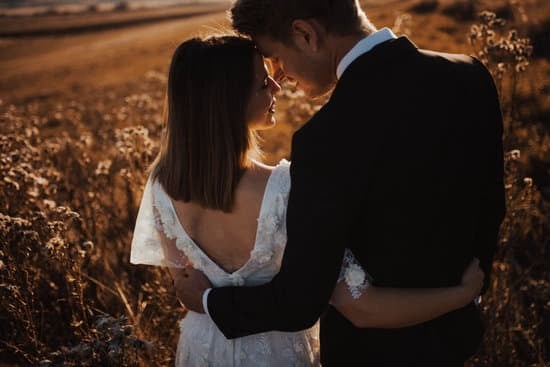Planning a wedding can be an exciting but daunting task, especially when it comes to determining how much you should pay for the big day. “How much should I pay for a wedding” is a common question that many couples find themselves asking as they embark on this significant journey. In this article, we will delve into the average cost of weddings and provide insights on setting a realistic budget that suits your financial capabilities.
When it comes to planning a wedding, one of the first steps is setting a budget that aligns with your financial situation. It’s essential to evaluate how much you can afford to spend on your special day without compromising your financial well-being. By considering factors such as income, savings, and potential contributions from family members, you can establish a budget that allows you to celebrate in style while avoiding unnecessary financial stress.
As we explore the average cost breakdown of weddings, we will take a detailed look at where your money will go throughout the planning process. From venue and catering expenses to attire and accessories, entertainment, decor, and hidden costs to consider, understanding the various aspects of wedding expenditures will help you make informed decisions and prioritize where you want to allocate your resources most effectively.
Stay tuned as we navigate through key factors that impact how much you should pay for a wedding and provide valuable tips on negotiating costs and saving money along the way.
Setting a Budget
Assess Your Financial Situation
The first step in determining your wedding budget is to take an honest look at your financial situation. Consider your income, savings, and any contributions from family members. It’s crucial to be realistic about what you can afford without going into debt. Remember that starting your marriage with financial stress is not ideal, so it’s essential to be mindful of your budget constraints.
Consider Your Priorities
Once you have a clear picture of your finances, think about what aspects of the wedding are most important to you as a couple. Do you dream of having a lavish ceremony but are willing to compromise on the reception? Or is it more important for you to have all of your family and friends present, even if it means cutting back on other details?
By prioritizing what matters most to you, you can allocate your budget accordingly and make informed decisions on where to splurge and where to save. This will help ensure that you’re getting the most out of every dollar spent on your special day.
Be Realistic and Flexible
It’s easy to get caught up in the excitement of planning a wedding and want everything to be perfect. However, it’s essential to be realistic about what you can afford and be willing to make compromises along the way.
Keep in mind that there may be unexpected costs that arise during the planning process, so having some flexibility in your budget will give you peace of mind knowing that you’re prepared for any surprises. By staying true to your budget while being adaptable when necessary, you can plan a wedding that is not only beautiful but also financially stress-free.
The Average Cost Breakdown
When planning a wedding, one of the most important considerations is how much to budget for the various expenses that come with the territory. The average cost breakdown of a wedding can give you an idea of where your money will be going and help you prioritize your spending. Here is a detailed look at where your money will go when planning your special day:
- Venue: The venue is often one of the biggest expenses when it comes to weddings. Whether you choose a luxurious hotel ballroom or a rustic outdoor setting, the cost of renting the space can vary significantly.
- Catering: Providing food and drinks for your guests can also take up a large portion of your budget. The price per person for catering services can range from budget-friendly options to high-end gourmet experiences.
- Photography and videography: Capturing the memories of your wedding day is important, so hiring a professional photographer and videographer is often worth the investment. Prices can vary depending on the duration of coverage and additional services offered.
When determining how much to pay for a wedding, it’s essential to consider all these factors and allocate your budget accordingly. By breaking down the average cost of each aspect of your wedding, you can make informed decisions on where to splurge and where to save. Remember that setting a realistic budget from the start can help you avoid financial stress and enjoy your special day to the fullest.
Venue and Catering
When it comes to planning a wedding, one of the most significant expenses is often the venue and catering. Couples are faced with the challenge of finding a location that not only fits their vision but also stays within budget. The cost of venues can vary greatly depending on factors such as location, size, and amenities included. On average, couples in the United States spend around $14,000 on their venue and catering combined.
To start your search for the perfect wedding venue, begin by setting a clear budget. Determine how much you are willing to allocate towards the venue and catering expenses. Remember to consider other costs involved in hosting your event at a specific location, such as service charges, gratuities, and taxes. Research various venues in your desired area and inquire about package deals they offer for both the venue space and catering services.
Once you have narrowed down your options, compare prices and what each venue includes in their packages. Some venues may include catering services in-house, while others might require you to bring in an external caterer.
Keep in mind that popular wedding dates or peak seasons can impact pricing, so be flexible with your wedding date if possible to secure better deals. Look for any additional perks or discounts that venues may offer for booking early or bundling services together to help save costs in this significant part of your wedding budget.
| Category | Average Cost |
|---|---|
| Wedding Venue | $9,000 – $15,000 |
| Catering Services | $5,000 – $9,000 |
Attire and Accessories
When it comes to planning a wedding, one of the biggest expenses that couples face is the cost of attire and accessories. From the bride’s dress to the groom’s tuxedo, as well as outfits for the bridal party, parents, and even flower girls and ring bearers, this category can quickly add up. It’s important to set a realistic budget and stick to it when it comes to selecting the perfect wedding attire.
Setting a Budget
Before you start shopping for wedding attire, take some time to sit down with your partner and determine how much you are willing and able to spend on clothing for your big day. Consider factors like whether you want designer or off-the-rack clothing, how many people will need outfits, and if alterations are included in the price.
By setting a budget early on in the planning process, you can avoid overspending and ensure that you allocate funds appropriately across all aspects of the wedding.
Finding Deals and Discounts
To help save money on wedding attire, consider looking for deals and discounts at bridal boutiques, department stores, sample sales, or even online retailers. Additionally, keep an eye out for special promotions or trunk shows that may offer reduced prices on dresses or suits.
Don’t be afraid to ask about package deals for larger groups or negotiate pricing if purchasing multiple outfits from the same vendor. By being savvy shoppers and doing your research, you can find quality clothing at a fraction of the cost.
Overall, when it comes to budgeting for wedding attire, it’s essential to strike a balance between finding pieces that align with your vision for your special day while being mindful of costs. With careful planning and strategic decision-making, you can create a memorable look for yourself and your loved ones without breaking the bank. Remember that prioritizing what matters most to you as a couple will ultimately lead to a meaningful celebration within your financial means.
Entertainment and Decor
When it comes to planning a wedding, entertainment and decor play a crucial role in creating a memorable experience for you and your guests. From the music that sets the tone for the day to the decorations that transform your venue, these elements are key in making your special day truly unforgettable.
However, finding ways to achieve this without overspending can be a challenge. Here are some tips on how to create a stunning ambiance while staying within your budget:
- Consider DIY projects: One way to save money on decor is by taking on do-it-yourself projects. Whether it’s creating centerpieces, designing signage, or crafting backdrops, putting in some extra effort can result in significant savings. Plus, adding personal touches to your decor can make your wedding feel even more special.
- Opt for multi-purpose decor items: When choosing decorations, look for items that can serve multiple purposes throughout the day. For example, using ceremony flowers as table centerpieces or repurposing aisle runners as table runners can help stretch your budget further.
- Shop around for entertainment options: Instead of going straight for the most expensive band or DJ, explore different entertainment options in your area. You may find talented local musicians or DJs who offer competitive rates without compromising on quality. Additionally, consider non-traditional forms of entertainment such as photo booths or lawn games to keep guests entertained at a lower cost.
By being strategic with your choices and thinking outside the box, you can have an elegant and entertaining wedding without breaking the bank. Remember that creating a memorable experience doesn’t necessarily require spending a fortune; it’s all about being creative and resourceful with how you allocate your budget.
Whether you choose to splurge on certain aspects of entertainment and decor or focus on cost-effective alternatives, the key is to prioritize what matters most to you as a couple. Ultimately, your wedding should reflect your unique style and personalities while staying within a budget that is comfortable for you.
By following these tips and keeping an eye on costs throughout the planning process, you can have the dream wedding you’ve always envisioned without the stress of wondering “how much should I pay for a wedding? “.
Hidden Costs to Consider
When planning a wedding, there are various hidden costs that couples often overlook, leading to unexpected expenses that can easily inflate the budget. One of the significant hidden costs to consider is gratuities for vendors such as caterers, bartenders, and musicians. While some vendors may include gratuity in their fees, it’s essential to factor in additional tips on the day of the event.
Another hidden cost is alterations for wedding attire. Brides and grooms may forget to budget for alterations to ensure their outfits fit perfectly on the big day.
Moreover, transportation costs can add up quickly if not properly planned for in advance. Whether it’s transporting guests from one location to another or hiring a limousine for the bridal party, transportation expenses can significantly impact your budget if not accounted for early on in the planning process.
Additionally, marriage license fees and permit costs for your venue must also be considered when calculating the total expense of your wedding. These administrative fees are often overlooked but are essential parts of the overall cost.
To help couples manage these hidden costs effectively, it’s crucial to create a detailed budget and include a buffer for unforeseen expenses. By setting aside a portion of your budget for miscellaneous or unexpected costs, you can avoid financial stress closer to your wedding date.
Researching potential hidden costs specific to your wedding location or chosen vendors can also help you anticipate additional expenses and plan accordingly. It’s essential to stay proactive in tracking your expenses throughout the planning process to ensure you stay within your desired budget range.
| Hidden Costs | Impact on Budget |
|---|---|
| Gratuities for Vendors | Additional tips add up quickly |
| Wedding Attire Alterations | Fitting costs that are often forgotten |
| Transportation Expenses | Can significantly increase total spending |
| Marriage License Fees and Permits | An overlooked administrative cost |
Negotiating and Cost-Saving Tips
When it comes to planning a wedding, one of the biggest concerns for couples is often how much they should pay for their big day. Negotiating and cost-saving tips can play a crucial role in ensuring that you get the most value for your money. With careful planning and strategic decision-making, you can make your dream wedding a reality without breaking the bank.
One key strategy for saving on wedding expenses is to prioritize what is most important to you as a couple. By focusing on the aspects of the wedding that matter most, such as venue, catering, or entertainment, you can allocate your budget more efficiently. Consider splurging on elements that are non-negotiables for you both while cutting back on others that may not be as significant.
Another effective way to save money on your wedding is by being flexible with your wedding date and time. Off-peak seasons and days of the week are typically less expensive for weddings, so consider scheduling your celebration during these times if possible. Additionally, booking vendors well in advance can often result in discounted rates and savings. By taking advantage of early bird deals and negotiating prices with vendors, you can reduce costs significantly.
Final Thoughts
Planning a wedding can be both an exciting and overwhelming experience, especially when it comes to the financial aspect. As you navigate through the process of setting a budget and making decisions on various wedding expenses, it’s important to keep in mind the significance of staying within your financial means.
By taking the time to carefully assess your finances and determine how much you can realistically afford to spend on your big day, you can avoid unnecessary stress and financial strain in the long run.
One of the key factors in determining how much you should pay for a wedding is setting a realistic budget that aligns with your financial situation. Consider your sources of income, savings, and any contributions from family members when establishing your budget. By having a clear understanding of your financial limitations, you can make informed decisions when it comes to allocating funds for different aspects of your wedding, such as venue, catering, attire, and entertainment.
While it’s easy to get caught up in the excitement of planning a wedding and splurging on every detail, it’s essential to prioritize what truly matters to you as a couple. Whether it’s opting for a more intimate celebration or finding creative ways to cut costs without sacrificing quality, there are plenty of opportunities to create a memorable wedding within your budget.
Remember that at the end of the day, what truly makes a wedding special is celebrating your love and commitment surrounded by loved ones – not how much money was spent. By approaching your wedding planning with mindfulness and practicality, you can ensure that your special day is everything you’ve dreamed of without breaking the bank.
Frequently Asked Questions
What Is a Reasonable Budget for a Wedding?
Setting a reasonable budget for a wedding depends on various factors such as location, number of guests, and personal preferences. On average, a wedding budget could range from $20,000 to $30,000 but it’s essential to consider what you can comfortably afford.
Is $10,000 a Good Wedding Budget?
A $10,000 wedding budget can be feasible for those looking to have a smaller, more intimate celebration or those who are willing to cut costs in certain areas. With careful planning and prioritizing what is important to you, it’s possible to have a beautiful wedding within this budget.
Is $20,000 Too Much for a Wedding?
Whether $20,000 is too much for a wedding really depends on your financial situation and priorities. While this may seem like a substantial amount of money, weddings can quickly become expensive with venue costs, catering, decor, and other expenses adding up.
It’s important to ensure that you’re not overspending and that the cost aligns with your overall financial goals.

I have been involved in marriages for over 20 years helping couples and singles understand more about them.





